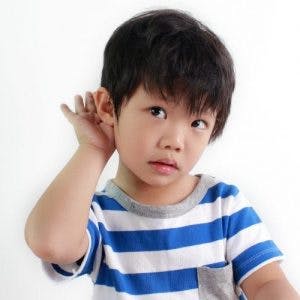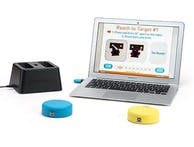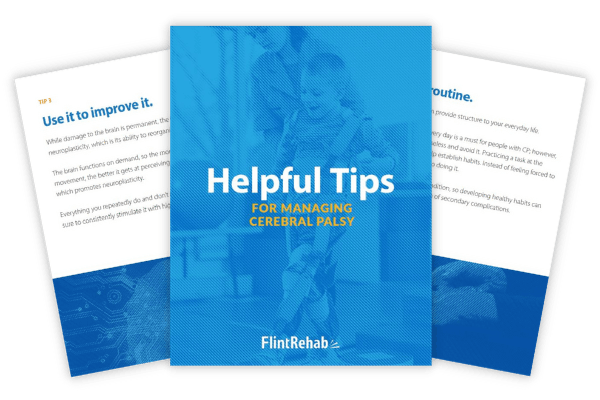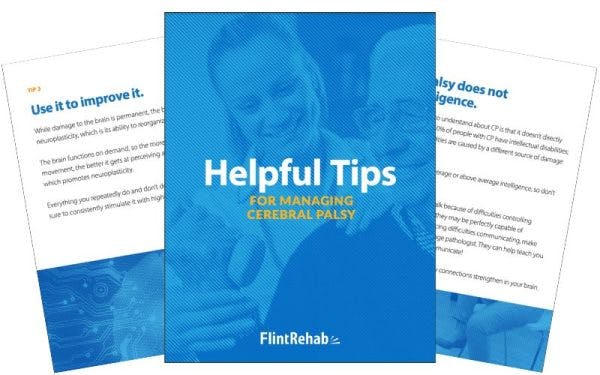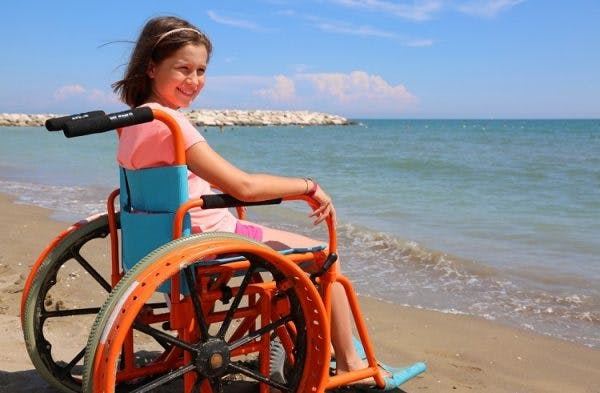Did you know that individuals with cerebral palsy are more susceptible to sleep problems? In fact, it’s suggested that 23%–46% of children with cerebral palsy experience some sort of sleep complication.
This article will explain how cerebral palsy affects sleep, the risks associated with poor-quality sleep, and tips for promoting a better night’s rest.
How Cerebral Palsy Affects Sleep
Sleep is essential for optimal growth, cognitive function, and temperament. Unfortunately, cerebral palsy can prevent children from getting the good night’s sleep they need.
Cerebral palsy is a developmental disability that primarily affects motor functions like movement, balance, posture, and coordination. Motor impairments affect the body not only while individuals are awake, but also in their sleep.
Common factors related to cerebral palsy that may interfere with sleep include:
- Spasticity. Spasticity describes involuntary muscle contractions caused by damage to the central nervous system. It can be a major source of pain or discomfort in individuals with cerebral palsy and keep them awake at night.
- Respiratory Complications. While asleep, individuals cannot consciously control their breathing. As a result, any sort of airway obstruction may interfere with breathing and disrupt sleep.
- Gastrointestinal Complications. Many individuals with cerebral palsy experience complications with digestion that cause discomfort and prevent sleep. The most common is gastroesophageal reflux disease, which can cause heartburn, vomiting, and nausea.
- Epilepsy. Cerebral Palsy and epilepsy may co-occur as a result of damage to the brain. It is well-known that epilepsy can disturb sleep and prompt sleeping disorders. Moreover, medications for epilepsy such as antiepileptics have side effects that may affect sleep and cause excessive daytime drowsiness.
- Visual Impairments. Visual impairments are not directly related to CP but commonly co-occur. Abnormal light perception affects the regulation of sleep hormones like melatonin and adenosine, which can affect sleep quality.
The following section will discuss signs of sleeping problems in individuals with cerebral palsy.
Signs of Sleep Problems in Children with Cerebral Palsy

It’s essential to identify and seek early management for sleep problems to prevent negative impacts on your child’s growth, mood, and learning.
Common signs of sleep difficulties in children with cerebral palsy include:
- Difficulties falling and staying asleep
- Teeth grinding
- Sleeping or excessive tiredness during the day (outside of naps for younger children)
- Difficulties breathing during sleep
- Nightmares
- Sleep talking
While one night of poor-quality sleep isn’t worrisome, continued nights of interrupted sleep can be problematic and significantly affect your child’s development and behavior during the day. In the following sections, we’ll discuss the benefits of getting a proper amount of sleep and the risks associated with sleep deficiency.
Benefits of A Good Night’s Sleep
Sleep is not just a time for quiet relaxation; rather it is an essential activity needed for the brain and body to function.
Getting the right amount of sleep has been demonstrated to improve one’s capacity for learning, as well as focus, creativity, judgement, and problem-solving skills.
Damage to blood vessels and other body tissues is often repaired during sleep. Additionally, hormones released during deep sleep promote normal growth and increasing muscle mass.
For those with cerebral palsy, these sleep benefits are particularly important, as challenges with cognition, circulation, and growth are frequent secondary or associative effects of CP.
Risks Associated with Lack of Sleep
One night of insufficient sleep is not a big deal, but repeatedly struggling to sleep through the night can have significant physical, mental, and behavioral implications.
Consequences of sleep deficiency include:
- Increased pain
- Insufficient growth and development
- Increased sensitivity and irritability
- Poor focus
- Increased susceptibility to getting sick
- Excessive daytime sleepiness
Sleep problems not only affect the child with cerebral palsy but also their families. Parents often report waking up multiple times throughout the night to tend to their children. As a result, both the child and their parents may experience the consequences of sleep deficiency.
Now that you understand how essential sleep is for growth and performance, let’s discuss treatments for sleep problems.
Treatments for Sleep Problems in Individuals with Cerebral Palsy

Treatments for sleep problems will vary from person to person depending on the primary cause of their sleep disturbance.
Below, we’ll go over 3 treatment interventions that may help promote a good night’s rest:
1. Create an Ideal Sleeping Environment
Setting the right sleeping environment can make all the difference.
Prioritize comfort. This means avoiding harsh lighting, distracting sounds, and extreme temperatures.
Additionally, make sure that the texture of your child’s bedding isn’t too rough and won’t irritate the skin. Pillows can also help your child to find a comfortable and supported sleeping position.
Developing a nighttime routine will help prepare individuals for sleep. This can involve restricting phone/iPad/television use an hour before bed and taking a warm bath to relax the muscles.
2. Ask About Medications
Depending on the primary cause of an individual’s sleep disturbance, the medication recommendations will vary.
For example, if the underlying cause of your child’s sleep disorder is general discomfort, over-the-counter painkillers like ibuprofen might just do the trick. However, if complications are more severe, more powerful medications may be necessary.
Medications that may be recommended for sleep problems in individuals with cerebral palsy include:
- Baclofen or other sedative agents (to help relieve spasticity)
- Anticonvulsants (to reduce risk of seizures in individuals with co-occurring epilepsy)
- Antacids (to neutralize stomach acid if digestion problems are responsible)
Keep in mind that if your child is prescribed stronger medications, there’s usually a greater risk of side effects.
Sometimes, the medications that your child is taking for other symptoms may be the cause of sleeping problems. For example, anticonvulsants can help prevent seizures during sleep, but may also increase fatigue during the day.
Be sure to speak to your child’s pediatrician before using any new medications, or regularly using over-the-counter medications. Rather than prescribing medications, they may recommend melatonin supplements to increase sleep hormone levels.
3. Be Mindful About Diet
Especially if digestive complications are responsible for your child’s sleep problems, it’s important to be mindful about what they eat towards the end of the day.
For example, try to avoid sugary foods several hours before your child’s bedtime to avoid spikes in energy. Additionally, large meals can be difficult to digest and may keep your child up at night.
Cerebral Palsy and Sleep: Key Points
Sleep problems in individuals with cerebral palsy are often overlooked but should be taken very seriously because they can significantly impact your child’s development. Insufficient amounts of sleep negatively affect growth, emotional stability, and cognitive performance.
Seeking a professional evaluation will help identify the root of your child’s sleeping problems and provide the best solution.


